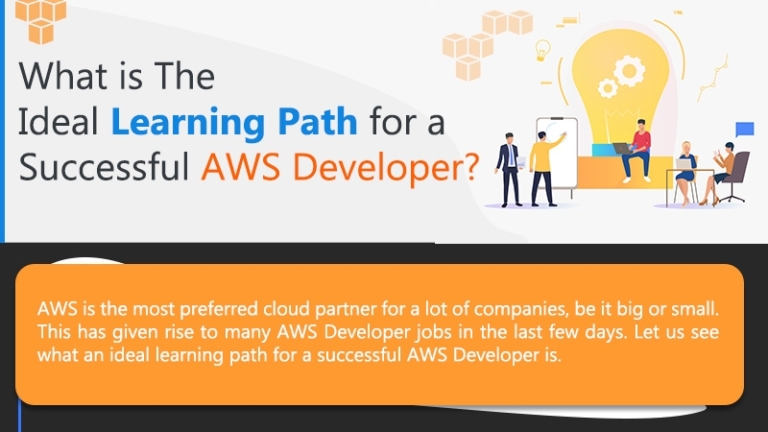Amazon certification can boost your salary potential. AWS or Amazon Web Services is an Amazon’s subsidiary. It offers many computer services like for computing, storage and networking along with Amazon Simple Storage Services and Amazon Elastic Compute Cloud. AWS is the dominant player in the cloud computing market space. Even today the public cloud market costs $236 billion and AWS retains a significant lead over its competitors including Google, IBM and Microsoft. This blog discusses the AWS Developer Career Path.
Amazon offers various certifications for the cloud computing professionals. AWS Developer Career scope is listed below. The certification portfolio is quite simple and falls into following three categories and are available in three associate and two professional levels:
AWS is the most preperred cloud partner for a lot of companies, be it big or small. This has given rise to many AWS Developer jobs in the last few days. Let us see what an ideal learning path for a successfull AWS Developeris.




